Anka Leśniak
works
biography texts contact
2026
2025
2024
2023
2022
2021
2020
2019
2018
2017
2016
2015
2014
2013
2012
2011
2010
2009
2008
2007
2006
2004
WORKS 2024
Pretty Flowers
A site-specific installation
dedicated to the Polish writer and columnist Zofia Bystrzycka
The Festival the Centre of the Worlds is Here
Przemyśl
the exhibition Wreaths and Stones
Curators: Jadwiga Sawicka and Lila Kalinowska
In Polish, the phrase "pretty flowers" is often used ironically to express surprise or amazement, which may not always have a positive connotation. The installation focuses on the life and work of Zofia Bystrzycka, who was born in Przemyśl before World War II. Zofia experienced deportation to the remote regions of the USSR, specifically Kazakhstan, where she endured extremely challenging conditions. During the era of the Polish People's Republic, she lived a luxurious life as the wife of the Polish ambassador in Paris, the writer Jerzy Putrament. Throughout her life, Zofia held various roles, including tractor driver, accountant, and war correspondent. She also took a beauty course and studied directing. Zofia gained recognition as a columnist and founded the magazine "Zwierciadło." Her story is one of a woman who defies simple historical categorization, making it difficult to fit her biography within specific historical narratives. The title of the installation references a collection of her satirical feuilletons published in the magazines "Szpilki" and "Nowa Kultura."
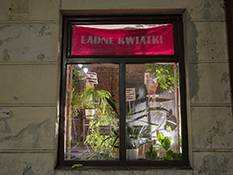
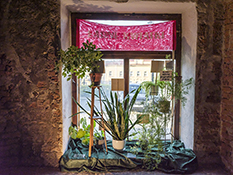
photo: Marek Horwat
Zofia Bystrzycka's satirical columns are a significant record of the customs during the early People's Republic of Poland (PRL) and showcase the writer's brilliance. Her texts, while seemingly promoting communist ideology, also accurately highlight the flaws and pathologies of this system. Bystrzycka effectively exposes the pervasive sexism and the patronising treatment of women in a country where propaganda touted full gender rights and encouraged women to enter professions traditionally seen as male. Although government policies contributed to women's emancipation and financial independence to some extent, power and the most well-paid, prestigious positions remained predominantly in the hands of men.


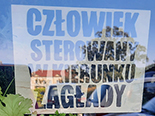
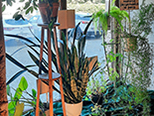
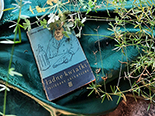
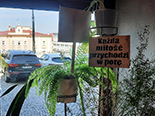
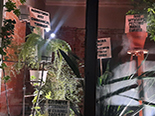
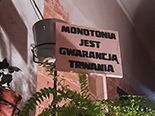
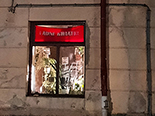
Zofia Bystrzycka's satirical columns are a significant record of the customs during the early People's Republic of Poland (PRL) and showcase the writer's brilliance. Her texts, while seemingly promoting communist ideology, also accurately highlight the flaws and pathologies of this system. Bystrzycka effectively exposes the pervasive sexism and the patronising treatment of women in a country where propaganda touted full gender rights and encouraged women to enter professions traditionally seen as male. Although government policies contributed to women's emancipation and financial independence to some extent, power and the most well-paid, prestigious positions remained predominantly in the hands of men.
The installation "Pretty Flowers" was displayed in the shop window of a tenement house at the market square of Przemyśl as part of the exhibition "Wreaths and Stones." Drawing inspiration from Zofia Bystrzycka's collection of feuilletons titled "Pretty Flowers," I showcased ornamental plants that were popular during the Polish People's Republic — plants commonly found in homes, offices, and institutions of that era. These plants may have been favored out of necessity, as access to other varieties was limited in the centrally controlled market economy. Above the plants, I hung a handmade banner featuring a tautological, red inscription, "Pretty Flowers." This phrase not only echoes the propaganda slogans from the Polish People's Republic but simultaneously proclaims a politically meaningless slogan, similar to "Spring."
Overall, the installation visually connects to the shop windows from the Polish People's Republic. Additionally, I placed signs featuring selected quotes, sometimes slightly paraphrased, taken from Bystrzycka’s texts, alongside the plants.
Monotony guarantees longevity.
Every love unfolds in its own time.
Humankind is headed towards destruction.
Other dimensions of accepting the world.
Nighttime does not submit to your will.